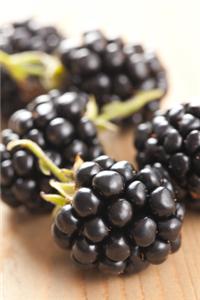Black Raspberries Fight Colon Cancer
 A new study reveals black raspberries may be instrumental in the battle against colon cancer, the second leading cause of cancer death in the United States.
A new study reveals black raspberries may be instrumental in the battle against colon cancer, the second leading cause of cancer death in the United States.
In a recent study, researchers compared the antioxidant activity of raspberries to that of blueberries and strawberries, two fruits thought to be superior in their amount of antioxidants. Black raspberries had not previously been considered in studies examining these cancer-inhibiting substances.
Researchers found raspberries had as much as 40 percent more antioxidant activity than the other berries. Gary Stoner, from The Ohio State University, says, “We were surprised by how much difference there was between the antioxidant activity of the raspberries versus the other fruits.”
To test the effects of these raspberries in cancer prevention, rats were injected with a carcinogen that causes colon tumors. After two weeks, the animals were divided into four groups that were fed diets mixed with 2.5 percent, 5 percent, 10 percent, or no freeze-dried black raspberries. Two additional groups of rats not exposed to the carcinogen were fed a diet containing either none or 5 percent of the berries.
After nine weeks, all injected rats developed lesions associated with the development of malignant tumors. However, researchers say the more berries a rat ate, the fewer tumors it had. In fact, they say the amount of malignant tumors was reduced by 80 percent in those animals consuming the most black raspberries. Stoner says, “That’s a much higher reduction than we thought we’d see.”
In addition, researchers report a reduction in the size of the tumors linked to increased consumption of berries and a reduction in the production of free radicals, thought to play a role in the onset of cancer. In all cases, the greater the number of black raspberries consumed, the larger the total reduction. Stoner says, “This suggests that berries bind up a good portion of free radicals, preventing them from causing damage in the body.”
SOURCE: Nutrition and Cancer, 2002

